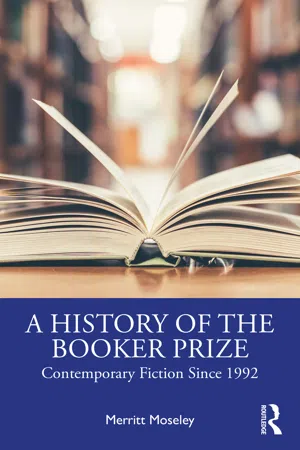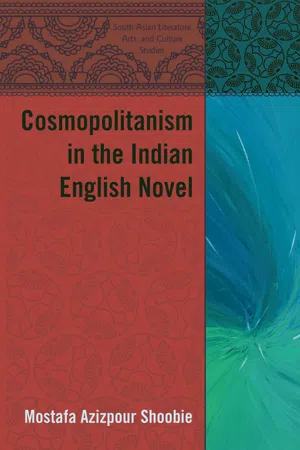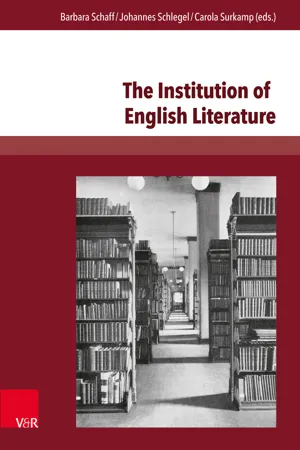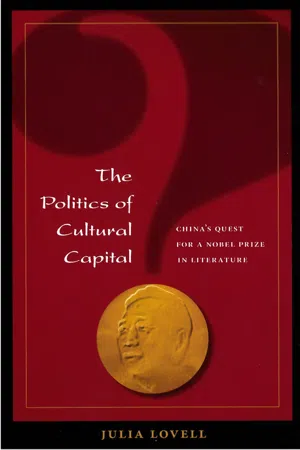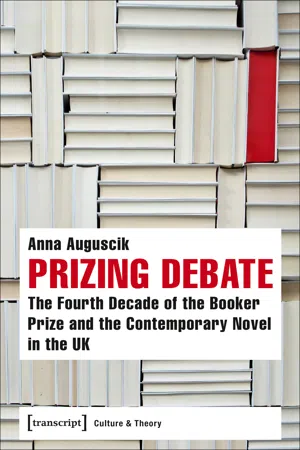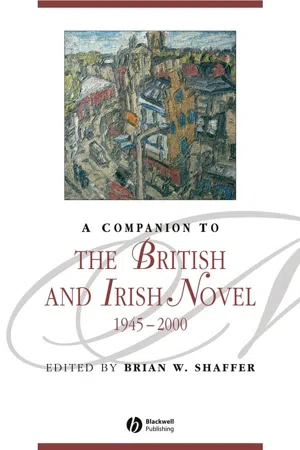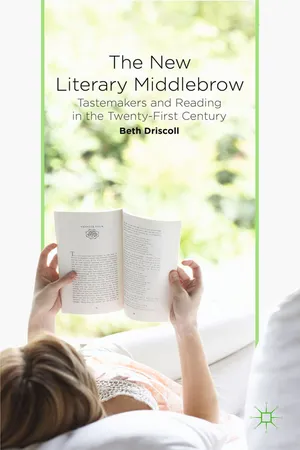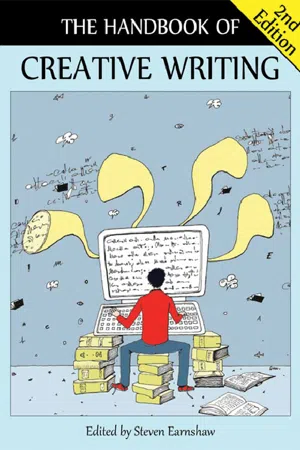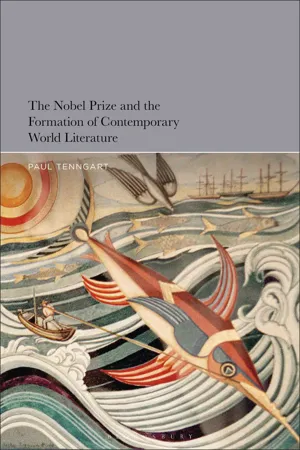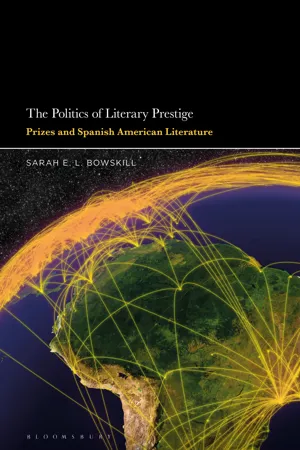Literature
Booker Prize
The Booker Prize is a prestigious literary award given annually to the best novel written in English and published in the United Kingdom or Ireland. It was established in 1969 and has since become one of the most coveted literary prizes in the world. The winner receives a cash prize and international recognition.
Written by Perlego with AI-assistance
Related key terms
1 of 5
10 Key excerpts on "Booker Prize"
- eBook - ePub
A History of the Booker Prize
Contemporary Fiction Since 1992
- Merritt Moseley(Author)
- 2021(Publication Date)
- Routledge(Publisher)
Over the 52 years of the Booker, there have been important changes, some of which were public and official: In 2002, the Booker company was replaced as sponsor by the Man Group, a financial services organization, and the name was changed to The Man Booker Prize (with, it must be acknowledged, minor change in the public nomenclature, as it continued to be called the Booker much of the time); in June 2019, the sponsorship changed again, to the Crankstart Foundation. This is the charitable foundation of Sir Michael Moritz—an author, venture capitalist and philanthropist—and his wife, novelist Harriet Heyman. The name remains (or has reverted to) The Booker Prize. The alteration of the rules of eligibility to admit American (and other non-British and non-Commonwealth) authors was both public and highly controversial.Other changes have been gradual and unofficial, as, over the years, a more equitable consideration of female and ethnic minority authors and those from outside the UK has been perceptible. Likewise, though arguably the rules governing submissions still favor the bigger and more established publishing companies (possibly predictable from the original mission and the role of publishers in setting up the prize), small and obscure publishers have made their way into the short list.These and other developments have worked together to make the Booker Prize what Anthony Thwaite, writing in 1986, said “is internationally recognized as the world’s top fiction prize.”5 An English author who was a Booker judge at the time, he may be suspected of some partisan overreach. But American literary editor Laura Miller concurred when she called the Booker “the best literary award.”6 - eBook - PDF
- Mostafa Azizpour Shoobie(Author)
- 2019(Publication Date)
- Peter Lang Group(Publisher)
The discussion in this chapter will be situated in the Indian context and its prizewinning novelists, Roy, Desai, and Adiga—with some reference of Rushdie who has had a deep influence on the growth of the Indian postcolo- nial fiction. I am ultimately interested in arguing that despite its inherently and historically colonial nature, and its supposed inclination toward works coming from authors born or bred or even writing about former or post-colo- nies, the Man Booker Prize is a cosmopolitan opportunity that gives writers a much needed financial boost. The situation is not all one-sided though. The prize money can actually work as a double-edged sword. In one respect, the prize definitely boosts book sales and draws Western and worldwide attention to the authors and their novels. But from a nationalist perspective, winning a Western award may lead to an exoticization or “Bookerization” that identifies a nation in a certain way, directing attention away from other local writing so that it may later become a hard-etched picture, difficult to erase. In the case of the Indian Booker winners, this doubleness is a fascinating field for discussion. Literary Awards: A Brief History For centuries, royal patronages were awarded to minstrels, dramatists, and es- sayists (Winegarten 65–75). They would mostly come in the form of mone- tary benefits and a sense of prestige. The literary prize in our modern times is a complex institution that, de- pending on its conception, can set the tone, value, and genre hierarchy for authors and their works. For example, the Man Booker Prize aims at the best literary prize and does not deal with crime fiction, science fiction, or romantic novels, for which there are separate awards. Literary prizes may be influential in shaping an individual writer’s career paths, generating a subsequent boom or a perceived decline, feted early or late in the course of their writing career. - eBook - PDF
The Institution of English Literature
Formation and Mediation
- Barbara Schaff, Johannes Schlegel, Carola Surkamp, Barbara Schaff, Johannes Schlegel, Carola Surkamp(Authors)
- 2016(Publication Date)
- V&R Unipress(Publisher)
Novelist and critic David Lodge, Booker Prize Chair in 1989 and two-time-nominee in 1984 and 1988 respectively, dis- closed that he was disillusioned with prizes in their function of literary judge- ment as “essentially discriminatory and divisive (Lodge 2007: 140). Seemingly depending on the commentator’s position, as well as on the par- ticular type of prize, awards are understood as a form of criticism, as a marketing tool, as the peak of a commercialized publishing industry, as a manifestation of the reader’s opinion, or as entirely idiosyncratic. Apart from being appropriated as part of criticism, prizes have been defined as part of a new culture of con- sumption (Todd 1996), as a continuation of the commodification of a perpet- ually created exotic periphery (Huggan 2001), “as a particular kind of media event” (Street 2005b: 820), as part of the promotional processes of marketing (Squires 2007). The representatives of the Booker Prize do not, however, so easily identify with one of the major players. The Prize – or its long-time admin- istrator – claims that it tries to please both publishers and booksellers on the one hand, and critics and academics on the other (Goff 1989: 17). These pressures are somewhat relieved by bringing justice to either set of criteria by rotation – but they can never be fully resolved to the satisfaction of all participants. The annual attempt on the Booker part to do so, to combine a culture of commodification and aesthetic criteria, is media-worthy material. The Booker Prize causes massive annual coverage in print, online, on TV and radio. 10 Sharon Norris sees the Booker as distinct from any of its rivals because of “the much higher level of media coverage given to this prize than any other” (1995: 76). It has the ability to cause a second wave of reviewing for the winning title as much as for the nominated books (cf. Todd 1996). - eBook - PDF
The Politics of Cultural Capital
China's Quest for a Nobel Prize in Literature
- Julia Lovell(Author)
- 2006(Publication Date)
- University of Hawaii Press(Publisher)
In Britain, the Man Booker Prize is more straightforwardly awarded to the “best” novel of the year written in English, including the Commonwealth but exclud-ing the United States. In France, the aim of the Prix Goncourt (limited to works in French) is to “encourage literature, assure the material well-being of a number of literary figures and strengthen the bonds of fraternity between them.”43 The Nobel, meanwhile, has striven for a century to identify an “ideal-istic tendency” that has contributed to mankind in general. Should the Nobel Prize then seek out purely professional, technically sophisticated (modernist/ postmodernist) writing that denotes some kind of perfection of literary form or advancement on forms of the past? What about socially engaged didactic writing that seeks to achieve a salutary effect on humanity — or popular litera-ture accessible to as much of humanity as possible? Should it pursue difficult, obscure writing, cut loose from coordinates of the real, that can apply to the human condition in its entirety? “Indeed,” Kjell Espmark admits in his study, “the history of the literature prize is in some ways a series of attempts to interpret an imprecisely worded will.”44 A former secretary of the Swedish Academy, Anders Österling ad-vocated only the very broadest of interpretations to Nobel’s idealism, claim- 56 chapter two ing that Nobel referred to works of a positive and humanistic tendency. Sture Allén, another former secretary of the Academy, has preferred to attribute to Alfred Nobel the taking of an “independent stand.”45 It is this assertion of broad independence that runs through the Nobel Prize’s history, incorpo-rating at the same time the contradictions of its philosophical heritage and historical practice. Regardless of its inconsistencies, the Nobel has laid claim to a neutral, universal realm by dint of its being the only literary prize with a global remit. - eBook - PDF
Prizing Debate
The Fourth Decade of the Booker Prize and the Contemporary Novel in the UK
- Anna Auguscik(Author)
- 2017(Publication Date)
- transcript Verlag(Publisher)
This alliance was later reported to have been a dream-come-true for both sides as they had already been cherishing expectations in this direction for some time. 8 The publishers had been thinking about invigorating the UK book market with a prize which would instigate debate. This wish was made concrete at a meeting of the Society of Young Publishers in 1964 at which Maschler took a leading role and where the first set of criteria for a possible prize was sketched. 9 Preferably, it would come with a large sum of money attached, reward books published in Great Britain, attract publicity (not least with a spectacular award ceremony), be judged in a way which would grant objectivity and be sponsored in a way which would guarantee autonomy. The authors present at the meeting requested that the criteria for winning the award not be coupled to book sales and that the atmosphere should be kept worthy. 10 The critics – represented by the literary editor of a daily newspaper – were in agreement with the propositions made so far, emphasising the hitherto lack of publicity for prizes, the need for 8 A most comprehensive history of the Booker Prize can be found in Todd, Consuming Fictions . 9 Cf. “Unnoticed Literary Prizes: Plea for a New Major National Award”, The Bookseller 7 Nov 1964. For a detailed account of a pre-history of the Booker with an emphasis on the publishers’ side, see Norris, “‘Simply the Best’”. 10 Four decades later, David Lodge named “the reason why prizes for fiction are of such enormous interest to the literary world and to the reading public” from the perspective of authors (“A Mixed Blessing: A Writer’s View of Literary Prizes”, 154): “they offer the writer the possibility of acquiring artistic prestige and making a large amount of money at the same time. The novel and the drama are the two forms in which you can do that, if you are lucky – hit both targets with a single arrow. - Brian W. Shaffer(Author)
- 2008(Publication Date)
- Wiley-Blackwell(Publisher)
With its proven and steadily increasing capacity to attract public attention to the struggle for contemporary canonicity – and to do so in many cases by attaching an air of scandal or controversy to the winners of this struggle, thereby augmenting their celebrity appeal – the Booker Prize quickly became the center of this commercially enriched field of literary activity. Booker winners of the early 1980s saw hardcover sales rise immediately through the roof in the days and weeks after the award ceremony, often creating some difficulty for publishers who had not yet caught on to the prize’s commercial impact and could not print enough copies to meet demand (Todd 1996: 104–5). But as the Booker consolidated its position of dominance among the British fiction prizes, a host of new prizes – labeled ‘‘Baby Bookers’’ in the press – sprang up in its shadow. Most of these prizes differentiated themselves from the Booker and from each other by establishing somewhat different rules of eligibility or criteria of evaluation. The Betty Trask (1984) was to be oriented toward more ‘‘traditional’’ fiction, including quality romance novels; the Sunday Express Prize (1988) claimed a more populist orientation toward the ‘‘good read’’; the Irish Times Aer Lingus (1989) positioned itself as more international in scope, more cosmopol-itan in outlook; the David Cohen Prize (1993) proposed to serve as an instrument both of consecration and of patronage by offering both a cash award and supplemen-tal money for the winner to put toward assisting younger writers; the Orange Prize, as mentioned, set out to correct an unmistakably male bias in British fiction prizes dating all the way back to the Hawthornden and notably including the Booker. But, apart from the Orange’s feminist slant, these sorts of distinction are not always easy to communicate or even (as in the case of the Sunday Express ’s populism) to maintain in practice.- eBook - ePub
The New Literary Middlebrow
Tastemakers and Reading in the Twenty-First Century
- B. Driscoll(Author)
- 2014(Publication Date)
- Palgrave Macmillan(Publisher)
4
The Man Booker Prize: Money, Glory and Media Spectacle
Not all middlebrow literary experiences are comfortable. To place a bet on the Man Booker Prize, I had to leave the bright noise of Finchley Road and walk down lurid, carpeted stairs, past a row of old men whose faces were lit by flickering TV screens. Behind a perspex counter, a young woman with spiky pink hair stared at me impassively.‘I’d like to place a bet on the Booker Prize.’She blinked.‘The what?’‘It’s a prize. For books.’She chewed her gum, scanned the calendar and flicked through the screens on her computer. Not only had she never heard of the Booker Prize, she didn’t know where to start finding it on their system. Maybe filed under novelties? After she vaguely offered to call Head Office, I scribbled ‘Lloyd Jones Mister Pip’ on a scrap of paper and handed over five pounds.The discomfort of this experience is at odds with the dominant middlebrow tenor of literary prizes, which is mediated in middle-class settings, and which combines prestige and money-making in dynamic tension rather than sheer awkwardness. Prizes are increasingly visible features of the literary landscape. As of 2013, there were at least 190 major literary prizes in the Anglophone literary field, and hundreds more minor, localized or specialized awards. Literary awards are spectacular stages that draw together authors and the public as stars and fans. Prizes offer spikes of adrenaline that drive sales for the book industry. At the same time, prizes declare themselves sober consecrators of genius, ignoring the market-driven successes of bestsellers to honour outstanding works of literature. In this collision of popular appeal and reverence for high culture, we can discern a leading example of the new literary middlebrow: prizes are reader-oriented, commercial, reverent towards elite culture and reliant on cultural intermediaries. - eBook - PDF
- Steven Earnshaw(Author)
- 2014(Publication Date)
- Edinburgh University Press(Publisher)
52 Literary Life: Prizes, Anthologies, Festivals, Reviewing, Grants Thomas Shapcott Prizes In the world of contemporary literary culture there are many baits and inducements still, even though book culture is, as it always was, threatened by economic and other challenges. There are, for instance, the proliferation of literary prizes which range from the world-acclaimed (and profitable) Booker Prize, the Whitbread Prize, to the Pulitzer Prize (in the US), the Governor General’s Prize (Canada) and the Miles Franklin Award (Australia) as well as a veritable host of other prizes and awards. These represent pinnacles, and even runners-up in the very grand awards can proudly announce the fact on their next dust-jacket, or their CV. Such prizes represent the peak, or the ultimate goal, for aspiring authors. I have listed a handful, but in the English-speaking countries there are dozens more of almost equal prestige. Authors, publishers, even book-sellers, can find in such prizes the very real incentive to foster the promotion of winning (or even short-listed) books, and everyone gains. The proliferation of literary awards accelerated towards the end of the twentieth century (the IMPAC Dublin literary prize – for a novel – only began in 1993, and it is the richest prize in money terms and, increasingly, in prestige terms). One of the consequences of this has been a certain sense of glut, so that it becomes increasingly difficult to gain media attention. Such awards, however, remain of great value to an author – and not only in cash terms (and in some countries, including Australia, the cash prize is, in effect, shared by the lucky author with the taxation department). Feature articles, ‘profiles’ and radio or television interviews suddenly become easier, or more frequent. Libraries show an interest (and in some countries Public Lending Right for books held in libraries can add effectively to an author’s steady income). - Paul Tenngart(Author)
- 2023(Publication Date)
- Bloomsbury Academic(Publisher)
5 Defining Literature: The Poetics of the PrizeEvery mid-October the discussion starts again. When the Swedish Academy announces the name of that year’s Nobel laureate, reactions are never univocal. Some critics and readers mean that the Academy this time around has made an excellent choice. Others shrug in a state of anticlimactic disappointment. Still others cannot believe their ears: Why on earth are they rewarding this particular author when that other one is still waiting to receive the honors? Arguments and opinions differ, but the fundamental attitude to literature is common in all these reactions: that literary values and merits can be justly compared, and that only the very best ones—the top-notch handful of all the world’s men and women of letters—deserve to be awarded with the Nobel Prize.These annual expressions of joy, pride, bewilderment, contempt, and frustration reveal an inescapable fact: that the group of eighteen Scandinavian intellectuals who call themselves the Swedish Academy form one of the most powerful institutions in the world in defining transculturally valid literary values. “The Nobel Prize,” writes Pascale Casanova, “is today one of the few truly international literary consecrations, a unique laboratory for the designation and definition of what is universal in literature” (Casanova 2013: 278).The Nobel Prize’s focus on universal aesthetic values has been there right from the start. They were already mentioned in Alfred Nobel’s last will. Just like the other four awards—in Physics, Chemistry, Medicine, and the Peace Prize—the literary prize was to be bestowed upon a person who had “conferred the greatest benefit to humankind” (Svensén 2001a: ix). This instruction was to be applied to all five prizes, even though it had and still has very different implications in the five different areas of achievements. What is universally beneficial in Physics, Chemistry, and Medicine cannot really be compared with wide, transcultural beneficial effects of literature and peace work, and putting human experiences and thoughts into poignant words is not at all similar to solving political and military conflicts between peoples and nations. As for literature, Alfred Nobel could not foresee the epistemologically problematic and ideologically charged navigation between languages and cultures, and the fundamentally imbalanced international power structures that instruct the recognition of different literary traditions. Nor could, of course, the writers of the Nobel Foundation’s statutes and the early Nobel Committees.- eBook - PDF
The Politics of Literary Prestige
Prizes and Spanish American Literature
- Sarah E.L. Bowskill(Author)
- 2022(Publication Date)
- Bloomsbury Academic(Publisher)
This reading was supplemented by article- length studies of prizes relating to Anglophone literatures in Africa by L. Attree (2013), Doseline Kiguru (2016) and D Pucherová (2011). Nathalie Heinich’s (1999) fascinating study of authors’ experiences of winning the Goncourt Prize helped me to realize the importance of considering the perspectives of different stakeholders. Prizes first caught my attention as mechanisms of canon formation while writing my own doctoral thesis and subsequent monograph on the twentieth-century Mexican canon in which I discuss the politics behind the creation and first instance of the Mexican Premio Nacional de Literatura (National Prize for Literature) (Bowskill 2011). Edward Mack’s (2010) study of the Japanese Akutagawa and Naoki Prizes was an important, and very readable, reminder of how prizes relate to the wider process of circulation and canon formation. Unsurprisingly, as probably the world’s best-known award for literature, the Nobel Prize has caught the critical imagination. Burton Feldman (2000) provides an excellent overview of all of the Nobel prizes. Richard Wires (2008) and Renee Winegarten (1994) analyse the prize for literature specifically. Kjell Espmark, member of the Swedish Academy, provides an insider’s perspective (1986). Julia Lovell (2006) looks at the politics surrounding China’s bid to have a Chinese laureate and the eventual award to Mo Yan. Rebecca Braun (2011) looks at the prize from a European perspective and has also studied literary prizes in Germany (2014). These texts inform my discussion of the Spanish American winners of the Nobel Prize for Literature in Chapter 3 even as I depart from the tendency to discuss the politics surrounding the choice of laureate to consider the political significance the authors try to negotiate for the award through their acceptance speeches.
Index pages curate the most relevant extracts from our library of academic textbooks. They’ve been created using an in-house natural language model (NLM), each adding context and meaning to key research topics.
